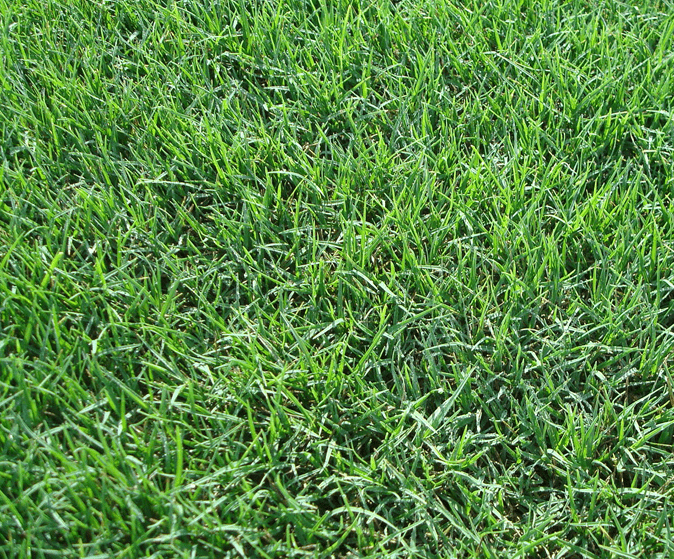Bermuda grass is one of the most common grass species for various reasons. It is tougher and can withstand harsh climatic conditions that other types of grasses cannot. It also grows and thickens fast.
Some people will argue that Bermuda grass does not require so much of care compared to other grass species, but this cannot be far away from the truth. This grass will still grow even in the worst of conditions both in the atmosphere and also in the soil.
The only difference between a cared for Bermuda lawn and a neglected one will be the fact the cared Bermuda lawn is thicker, greener, and healthy. The neglected Bermuda grass lawn has unhealthy thinning ugly spots.
Just like any other plant, Bermuda grass requires some bits of care if at all you want that green thicker, and healthy carpet-like lawn.

How to Make Bermuda Grass Thicker and Greener
Several things can lead to thinning unhealthy spots of Bermuda grass on a lawn; incorrect timing for planting Bermuda grass, poor soil conditions, allowing the grass to grow very tall, too much shade, not watering the grass enough, and pests and weeds among others.
But the good news is that you can always reverse your unhealthy thinning spotty lawn to a healthy thick and greener Bermuda grass lawn with these easy and simple hacks.
1. Mow the grass short
Unlike other grass species, Bermuda grass grows tall very fast and within just a few weeks of planting, your lawn is looking bushy if not mowed. The tall tuft of Bermuda grass you enjoy could be the same reason that kills it.
Very tall blades of Bermuda grass block sunlight from reaching the base of the lawn and this ends up weakening the grass, something that results in an unhealthy lawn. To prevent this from happening, mow your Bermuda lawn short to open up the base for more sunlight.
Due to its faster growth, you might need to mow your lawn every week. But just like with other grass types, never mow more one third the height of your Bermuda lawn grass at once.
Doing so exposes the freshly cut grass blades to elements that adversely affect the health of your lawn. Also, sharpen your lawnmower blades for a more pronounced and healthy cut.
2. Clear the shade
Bermuda being a warm season grass, requires sufficient sunlight for proper growth. Trees, flowers, and other plants that overhang the lawn provide too much shade for Bermuda grass.
As much as some shade protects the grass from the excess summertime heat, too much of it hurt the grass and make it unhealthy and thin. Plenty of shade prevents the turf from accessing enough sunlight.
Clear the overhanging plants and trim the trees and bushes. Enough sunlight leads to more chlorophyll and consequently a lush green thicker Bermuda grass lawn.
3. Feed the soils with lawn fertilizer
Your thin spotty lawn of unhealthy Bermuda grass could also be a result of a lack of essential nutrients in the soil. To ascertain what is missing in your lawn soil, take some samples for testing.
In most cases, too much acidity inhibits the proper growth of a healthy greener lawn. For ideal soil fertility apply an organic with an NPK ratio of 4.1.2 and then wait for your Bermuda grass to turn greener and thicker.
4. Get rid of weeds
Weeds such as dandelions, crabgrass, compete with Bermuda grass for the little nutrients available in the soils. And because weeds are more vibrant and resistant to diseases, they tend to outgrow the grass, hence the spotty lawn with unhealthy looking Bermuda grass.
If the weeds are scattered on the lawn, you can easily pull them out by hand. This is the best selective method since it does not risk the grass in any way. Alternatively, you can treat the lawn with a weed killer with Quinclorax.
When applying commercial or domestic weed kills, ensure to bring them close to the weed plant as much as possible, to avoid killing the surrounding grass. You could also kill the weeds by using a heat gun; the heat kills the cells in the plant thus killing it.
5. Treat lawn diseases and pests
Japanese beetles and grubs are the most notorious pests on Bermuda grass lawns. If not dealt with on time, these could not only make your lawn spotty with thin unhealthy grass, they could even get rid of all the grass when they feed on it.
Treat your Bermuda grass lawn with a pests control herbicide. At the same time, some fungal lawn diseases such as dollar spot, brown patch, and spring spots are very common on Bermuda grass lawns. To get rid of or prevent these, treat the lawn with a pre-emergent herbicide.
6. Aerate the soils
Compacted soils make it difficult for Bermuda grass roots to spread deep and wide for healthy growth. Presence of thatch, which prevents the proper growth of Bermuda and other grass species, is also a sign of compacted soils.
Compacted soils also make it impossible for the grassroots to absorb any essential nutrients and water and this way, the grass becomes thin, spotty, and unhealthy and could even die eventually.
To aerate your lawn use a spike aerator or a plug aerator to punch holes in the soil for free flow of air, water and nutrients. With loose soils, the Bermuda grassroots will also spread far and wide for good absorption of supplies.
Final Thought
Bermuda grass is a know to produce a dense thick lawn when planted under right growth conditions. This should be coupled with the proper care that include proper mowing, fertilizing, weeds control and treatment of pests and diseases.